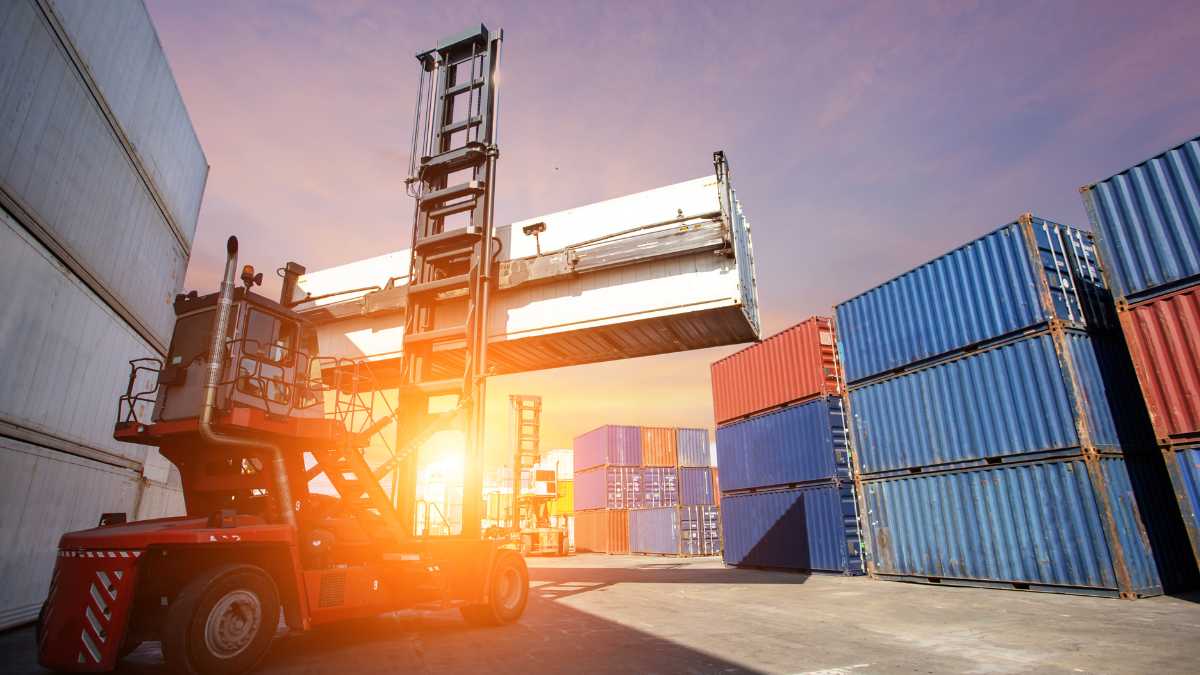Warehousing and logistics are two different components but incomplete without each other. Logistic companies need to manage inbound and outbound logistics for a seamless supply chain. And companies need space to store the goods to fulfil the surplus demand of the market.
Here, the warehouse plays a vital role in safe storage, inventory management, management of cancellation orders, and many more. So, we can say that warehouses are the future of logistics company that you need to understand more.
Top 5 Features That Proves The Importance Of Warehouses For Logistics Companies
Inventory Management
The warehouse helps with seamless inventory management of large-sized inventories. It helps synchronise the supply with demand with real-time data regarding order fulfilment, shipment, and receipt. This may help leverage available resources and expand the business in the long run.
Centralization Of Goods
Warehouses provide the central location for the goods, making it easier for logistics companies to receive, store, and distribute. Storing the goods in one place can reduce the cost of transportation and increase the value of the products being available at the right place at the right time. Centralization of goods helps manage various operations such as consolidation, assembling, mixing, and cross-docking of products in one place.
Economic Benefits
Centralization of products provides an effective operation warehousing system that tends to cut down the various expenditures such as transportation expenses, shipping, and delivery costs. Companies can boost efficiency by improving inventory accuracy, increasing flexibility, and enhancing their customer services. Improving these operations can help beat their competition and be a profitable business in the future.
Safeguarding The Goods
The warehouse offers protection against theft, loss, and damages from unfavourable conditions such as heat, wind, dust, and moisture. Additionally, a warehouse provides a particular arrangement for different types of products. And being all the products in one place makes it easy to safeguard the goods by hiring a security staff from theft.
The use of the latest technologies like security cameras and advanced alarm systems in the warehouses provides extra security for the goods.
Efficient Movement Of Goods
The proper arrangement of different products in the warehouses enhances the inbound and outbound activities. It means the worker can easily find the right product, pack quickly, efficiently load goods on the trucks, and ship them on time. This seamless and uninterrupted order fulfilment increases the speed of the logistics process.
The 6 Types Of Warehouses Can Be The Future Of Logistics Services
Though warehouses can help in various logistics operations and make them efficient, the main purpose is to provide space for a particular type of inventory. Below are different types of warehouses that are popularly being used by logistics services.
Smart Warehouse
When it comes to advanced warehousing and logistics services, smart warehouses come first to our mind. The activities like storage, fulfilment order and inventory management are automated with AI. These types of warehouses can be called the future of logistics services with the use of robots and drones for packaging, storing, weighing, and transporting goods.
Smart warehouses are popularly being used by big corporations and e-commerce businesses that make order fulfilment quick and less prone to human errors. In addition, smart warehouses allow businesses to manage their inventory more accurately, increase safety and security within the system, and give insight into overall business efficiency.
Cooperative Warehouse
The warehouses that are won by multiple organisations or businesses tend to work together to save money, called cooperative warehouses. This is a great solution that is interdependent to each other storing their products in the same place with their mutual understanding. This can save lots of money for both businesses and reduce rates for more tenancies.
Consolidated Warehouse
As the eCommerce business is growing rapidly, consolidated warehouses are the future of logistics companies. These types of warehousing collect small shipments from different suppliers in geographical locations and combine them to make bigger shipments. These warehouses are beneficial for small businesses and startups that might not have a very large amount of inventory.
The grouping of smaller shipments and shipping them together makes them economically friendly. These warehouses are generally near the marketplace, which lowers the cost and causes time-saving. And being the smaller inventory, it doesn’t require a high inventory level and high capital investment.
Bounded Warehouse
The warehouses that store the imported products before costume duties are completed are called bounded warehouses. Custom clearance can be a lengthy and extensive process that can harm the product imported from other countries. So, the government provides the businesses a rental space with a bond to ensure the safety of the product once ordered.
In this bond, the companies do not need to pay the duties until the product is released from storage. These warehouses also facilitated accommodating a large variety of products.
On-Demand Warehouse
On-demand warehouses are becoming popular with the increase in online commerce businesses. Before the introduction of on-demand storage, the companies needed to rent the whole warehouse, even for the small inventories. This warehousing facilitates the businesses to rent the particular area for temporary or seasonal needs.
These are great options for businesses dealing with sudden spikes and can approach similar companies to store the goods together. This makes it more cost-effective both for the logistics services and the businesses.
Distribution Centres
Distribution centres are the chain of different warehouses of a logistic business to make order fulfilment faster. Even 3PL is being used to easily supply the product to the customer.
Distribution centres are basically the order fulfilment system rather than inventory storage. This is designed to increase the overall efficiency of inventory management and make it affordable for the companies selling to the wholesalers.
Final Verdict
Earlier, warehouses were often used to store the products and provide protection to them. Now, these warehouses are growing smarter and logistics services, and companies are using this to improve their supply chain and provide the best solution for the customers.
The above warehousing models tend to speed up the logistics operations with the use of AI-powered software and even connect two businesses at the same place. With such growth, we must say that these warehouses can be the future of logistics services for multiple businesses.
On Socialbuzzness, features articles on and about technology, business, lifestyle, and health. Socialbuzzness covers all kinds of news, including entertainment, technology, business, and finance.











